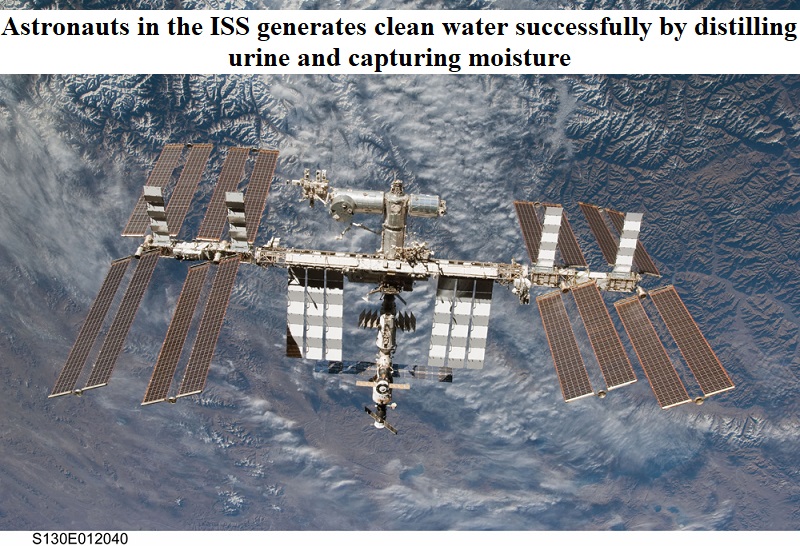
A major breakthrough in space exploration occurred when astronauts aboard the International Space Station successfully generated clean water by distilling urine and capturing moisture.
To accomplish this milestone, the team utilized the Environmental Control and Life Support System (ECLSS) of the space station.
The ECLSS was designed to collect wastewater, including moisture from the crew’s sweat and breath. This wastewater was then directed to the Water Processor Assembly (WPA), where drinkable water was produced.
In addition to processing sweat and breath, the Urine Processor Assembly (UPA) recovered water from urine through vacuum distillation. However, this distillation process resulted in the production of urine brine containing water components.
Scientists are now testing a new technology called the Brine Processor Assembly (BPA) to further improve water recovery from the brine. The BPA, which is a subsystem for extracting wastewater, is being evaluated in a zero-gravity environment.
The brine, produced by the UPA, undergoes special membrane technology in the BPA, followed by the evaporation of water using warm, dry air. This process creates humid air, which, along with the crew members’ breath and perspiration, is collected by the water collection systems on the station.
Christopher Brown, a team member at Johnson Space Centre, hailed this achievement as an important step in advancing life support systems. He emphasized the significance of water recycling in space and highlighted the accomplishment of launching with a limited water supply while minimizing water loss.
Scientists noted that the water produced from urine and sweat is cleaner than the drinking water available on Earth. They clarified that the crew members are not directly consuming urine but are drinking reclaimed, filtered, and thoroughly cleaned water.
This historic feat underscores the extensive ground testing and sophisticated processes implemented to ensure the production of clean and potable water in space.
Water remains crucial for long-duration space travel due to its multifaceted significance. It is essential for the well-being and survival of astronauts, serving purposes such as hydration, food preparation, and personal hygiene. A continuous supply of clean water is vital for maintaining the crew’s health and performance and sustaining life support systems on spacecraft.

Post Your Comments